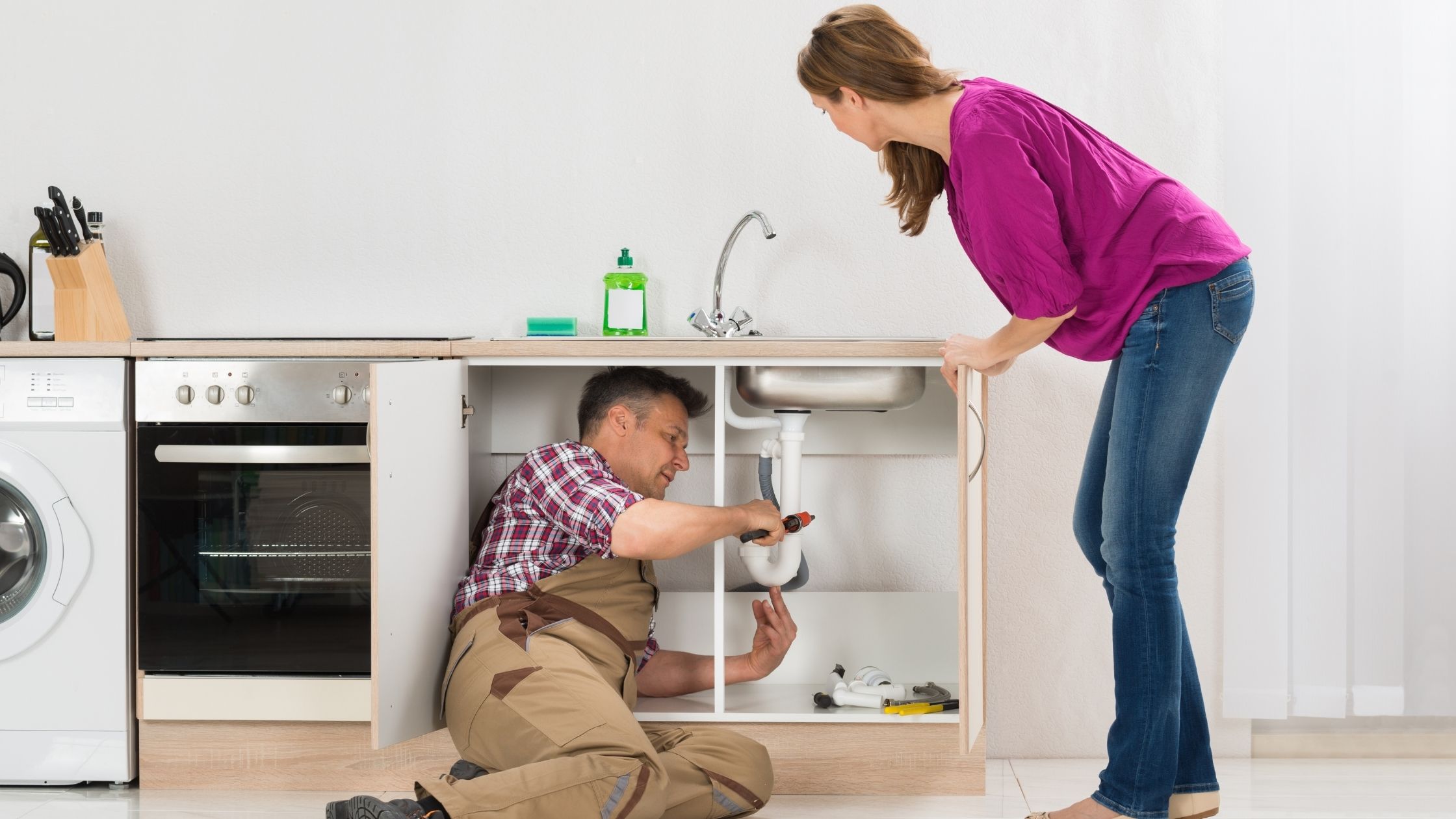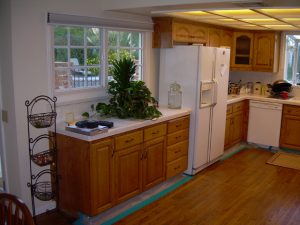Leading 4 Causes of Water Damage and How to stop Them
Leading 4 Causes of Water Damage and How to stop Them
Blog Article
Just how do you actually feel in regards to Causes of Water Damage in Kitchen?

The kitchen area is the room where a lot of water activity goes on. You can hardly do anything without using water in the kitchen, from food preparation, cleansing, and also doing the recipes.
Therefore, inspecting your kitchen every now and then is a necessity. This is due to the fact that it has a greater possibility of obtaining water damage as a result of the devices you make use of there.
When defective, these appliances that control water could make your cooking area unpleasant and also impact the structure of your building in the long run.
So, let's check out some sources of the water damage in the kitchen area as well as what you ought to look out for.
Some Sources Of Water Problems in the Cooking area
These are a couple of root causes of water damage in the kitchen area.
Faulty Kitchen Sink
The kitchen sink is a vital and also the majority of utilized part of the kitchen area. Thus it is prone to water damage; damages such as obstructed pipelines, leaking pipelines, and also damaged taps.
These problems can be bothersome, particularly when one is hectic in the kitchen. However, it does not simply occur without providing a sign or an idea. So below are some signs to recognize when your sink is not all right
So, these are the major problems that can take place to your kitchen area sink. However, one means to stop this damage is by making certain that food bits do not enter into the pipelines. You are also examining the pipelines and taps and making certain that it is correctly dealt with as well as in good condition.
Leaking Dish washer
Dishwashers make life in the cooking area simpler. It is an optional kitchen area device as well as, when readily available, can be a source of water damage. On top of that, like other equipments, it will create faults with time, despite upkeep.
Among the faults is dripping through the door or underneath the dishwasher. These mistakes create because of age, splits, wrong usage, loosened links to pipelines, and so on.
Faults because of age originated from continuous use. As a result, the door leaks as a result of closing as well as opening up.
Likewise, mistakes from the incorrect usage may create water damage by introducing cracks to it. Hence, it is recommended to comply with the hand-operated guide of the dishwasher to prevent this specific damages.
The leakages under the dishwasher can come from fractures in the gasket, tube, and incorrect or loose connection to pipes or drains pipes.
This kind of leak commonly goes unnoticed and can be there for a very long time. Nonetheless, due to the time framework, it might harm the flooring and trigger mold growth.
More so, the longer the water stays, you will observe the bending of the flooring where the dish washer is. When inspecting if your dishwashing machine leakages, this is an excellent indicator to look out for. Detecting and also repairing this promptly prevents serious water damage to your flooring.
Faulty Drain Pipes
Drain Pipes are necessary parts of our houses, especially in our kitchens and bathrooms. They get faulty by getting obstructed, fractured, and also ruptured. Or worse, they can be wrongly or loosely connected; whichever the instance might be, it can be a serious issue.
Defective drain pipelines can create water damage as well as, consequently, cause mold development and also damage the look of your wall. It can additionally make the afflicted area look messy.
Therefore, it is suggested constantly to check to ensure that all the pipelines are in good condition and obtain an audio plumbing system to maintain and also take care of any concerns.
Bottom Line
Keeping an eye out for damages in your cooking area can be charging but essential. It makes your work there less complicated as well as safer.
Nonetheless, the causes detailed above are just a few factors to take into consideration, especially if your cooking area has a lot of devices.
Get an expert pipes service to come about and inspect for any kind of damage as well as obtain them fixed.
It makes your kitchen location damp and untidy, especially when leaking from the pipelines. And if it is leaking from the tap, it leads to water wastage.
It is an optional kitchen area device and, when offered, can be a resource of water damage. Extra so, the longer the water stays, you will see the warping of the floor where the dishwashing machine is. Detecting and fixing this on time stops significant water damage to your flooring.
WAYS TO PROTECT YOUR KITCHEN FROM WATER DAMAGE
The kitchen is one of the most significant rooms in your house, as it is a multipurpose room wherein you can do your cooking and cleaning. Nowadays, homeowners tend to ignore the problems under their sink or appliances because of their busy schedules. However, most household floods occur due to plumbing and appliance failure. One of the most common scenarios that cause water damage to your kitchen is when the dishwasher malfunctions and floods gallons of water.
Water damage in your kitchen can cause several problems, including cosmetic damage, mold growth, and even an unpleasant smell. Often, if you fail to neglect the problem, there are always consequences. This article will help you protect your kitchen from water damage.
Common Causes of Water damage in your kitchen
Pipe problems are the most common source of water leaks under your sink. If homeowners ignore this issue, it will burst and flood the kitchen. Dishwasher leaks can be a source of water damage in your kitchen. An old, broken, and defective dishwasher can cause leaks, damage to your floor, and even mold growth. Refrigerator leaks can cause water damage in your kitchen, as sometimes melted ice from defrosting can cause leaks. Furthermore, if your refrigerator has internal problems, it is very likely to cause water damage. Back-splash and sink caulking can cause discoloration and water damage to your countertop tiles. Ways to Protect Your Kitchen From Water Damage
Regular maintenance
The most important thing you can do to protect your kitchen from water damage is to inspect the sinks, drains, and pipes, as well as the kitchen appliances, regularly. As with the sink, check for missing or deteriorated caulk. Remove the old caulk and clean the area thoroughly and re-seal it with fresh silicone. Furthermore, sweep the drain regularly, empty the filter and dispose of the debris in the garbage, and inspect the supply lines and valve for cracks.
Check your appliances
Check the user’s manual for instruction and proper use of every water-related appliance installed in your kitchen. For the dishwasher, check this procedure to prevent the dishwasher from flooding your kitchen. Check the appliances that need water, such as the coffee maker, ice maker, and water cooler, as they can become the cause of water damage in your kitchen. You may call a professional to check and repair damaged appliances and professional restoration for water damage clean-up.
Garbage clean-up
Fats, oil, and grease are common in the kitchen. Pouring them down the drain can cause clogs and sewage backup, which may result in significant kitchen water damage. If your kitchen sink is clogged, use a solution of hot water, baking soda, and vinegar to unclog the fats and oils in the pipes. Also, make sure to throw out the debris in the trash and clean the sink properly using paper towels for greases and oil and soap or bleach solution for the sink itself.
Shut off your water line
Make sure to shut off your main water line, especially if you're away and having some flood issue. As mentioned, dishwasher leaks are one of the most common culprits of water damage in the kitchen. So, make sure to only use the dishwasher if someone is at home and available to attend in case a problem arises.
Furthermore, it is also important that every member of your household knows where the shut-off valves are located. So in case of an emergency, they can mitigate the damage by turning off the water source.
Install leak detectors
One of the best ways to catch water damage before it could even cause serious damage to your home or business is by installing a water or leak detector. A leak detector monitors the flow of water through a pipeline, can detect moisture in the air for molds, and tracks the water temperature. Also, it can shut off your water line in case of an emergency. Install leak detectors under the kitchen sink, near the dishwasher and refrigerator.
https://superiorrestore.com/7-ways-to-protect-your-kitchen-from-water-damage/

We hope you liked our topic on Water Damage in Kitchen. Thank you for taking the time to browse our short article. Loved our write up? Please share it. Let others locate it. I thank you for reading our article about How To Prevent Water Damage To Your Kitchen.
Call Us Today Report this page